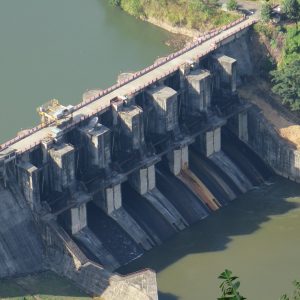The Stream, July 14: International Efforts Continue to Address Drought and Disease
The Global Rundown
Laos recently signed a new agreement with the World Bank which should help bring water to more of its remote, mountain-dwelling citizens. Namibia is losing important construction jobs over its ongoing drought. Half of all U.S. states have some degree of corrosive groundwater. An unlikely Nebraska-Dubai joint effort may mean new drought solutions for the Middle East and North Africa. Malaria cases are down, but other illnesses are on the rise as a result of drought in Somalia. And in India, many are questioning agricultural policies that do not address water lost through major exports like rice and sugarcane.
“We export agriculture products without any thought. When water is embedded in a product that’s exported, it’s lost forever. That’s a bigger danger for our water.” –Prashant Goswami, director and climate scientist at India’s CSIR-National Institute of Science, Technology and Development Studies. Goswami is advocating an agricultural strategy similar to that employed by China: import more water-intensive produce and export food that requires less water. (Bloomberg)
By The Numbers
40,000 Number of Namibian construction jobs at risk due to the country’s water crisis. An additional 400,000 indirect jobs, ranging from material suppliers to construction site cooking staff, are also at risk because of the construction industry’s water-intensive nature. Some larger companies have started implementing water-saving measures, however many smaller companies lack the resources to follow suit. The Guardian
$30 million Cost of a recently signed World Bank-Lao People’s Democratic Republic agreement to finance the country’s Poverty Reduction Fund and its efforts to improve infastructure and access to clean drinking water. The funds are expected to benefit impoverished ethnic minority groups located in remote mountainous areas. World Bank
25 Number of U.S. states that have a high potential for corrosive groundwater, according to a U.S. Geological Survey assessment of more than 20,000 wells nationwide. The agency also found that all 50 states’ groundwater contains at least two indices of corrosivity. If left untreated, corrosive groundwater can dissolve lead and other metals in pipes, tainting water supplies. USGS
Science, Studies, And Reports
The University of Nebraska-Lincoln and the Dubai-based International Center for Biosaline Agriculture are co-leading a $4 million research effort aimed at increasing agricultural productivity during drought in the Middle East and North Africa region. The two will develop monitoring tools and help invested organizations better understand water needs and vulnerabilities in the region. Their work will be presented later in the year at town hall-style forums in Tunisia, Morocco, Lebanon and Jordan. AG Pro
On The Radar
Water scarcity in Somalia is causing a proliferation of eye infections and skin diseases, particularly among the country’s 300,000 malnourished children. Experts also fear some epidemics, such as measles, diarrhea and pneumonia, will spread more quickly as an increased number of people interact around fewer water sources. One positive note: the drier weather has caused a reduction in mosquito-borne malaria cases. International Federation of the Red Cross
Circle of Blue contributor
Nick is interested in the social and political instability caused by growing global resource scarcity. He is also the director of communication at On the Ground, an international aid and development NGO that supports sustainable community development in farming regions.



